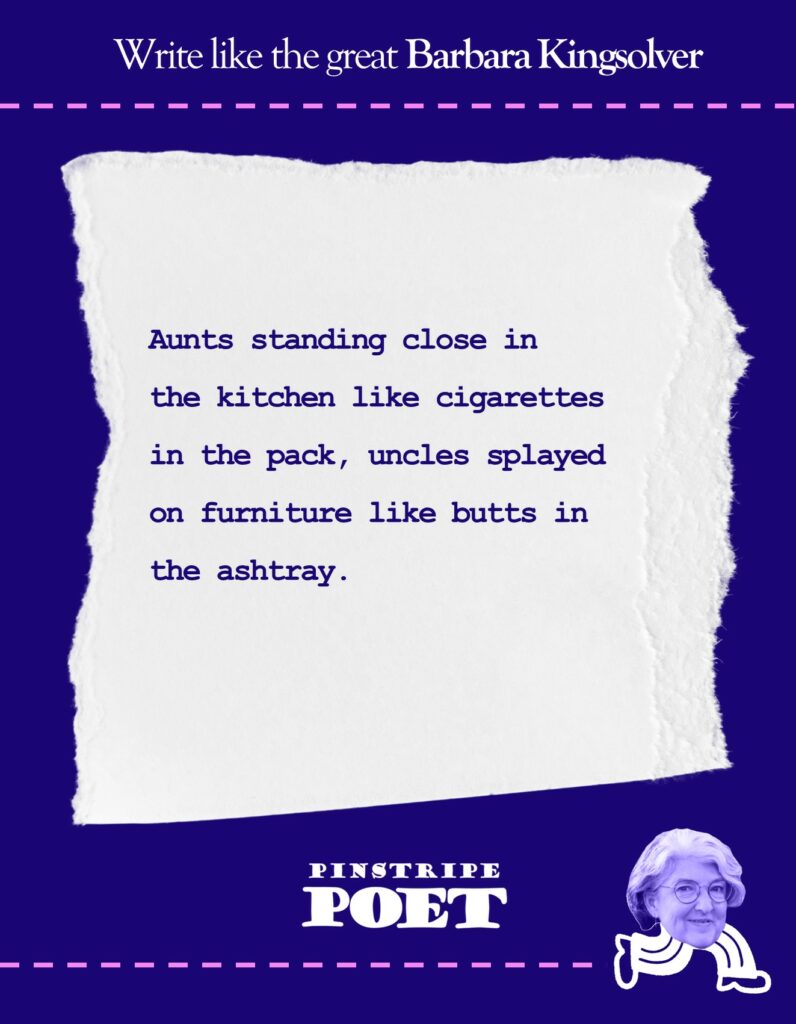
That’s the voice of Demon Copperhead: titular character of Barbara Kingsolver’s novel.
It’s a narrative voice that sticks like mud. Once you read it, you can’t shake it off.
(Especially if you careen through all five-hundred-plus pages of Kingsolver’s book, like I did — unable to put it down.)
Demon would be pleased with the voice-mud comparison. He’s an Appalachian boy; instead of a playpen, he had a creek. And its mud…
made you feel rich — leaf smelling, thick, of a colour that you wanted to eat
His best friend was right there, in the dirt, alongside him: Maggot — one of many nicknames to illuminate Kingsolver’s pages.
Names, descriptions, turns of phrase: these gild the brutal events of Demon’s life. He can take it. The reader can take it. Because there is beauty to behold, even in the bad.
You have:
- the ‘dog-breath air of late summer’;
- the guy with ‘wrongful’ eyebrows;
- the man who makes his way down a staircase ‘like something dumped out of a bucket’.
Kingsolver lights up her grim text without ever betraying the character of Demon. She restricts herself to words, references and imagery that her narrator would know.
And so, the aunts weren’t standing in the kitchen like tulips, while uncles slumped like offcuts. The aunts were cigarettes. The uncles were butts. And Kingsolver’s writing is all the stronger for it.
No clichés — only character, vision and voice.
Aidan Clifford writes for Pinstripe Poets – artists who love their day jobs.


